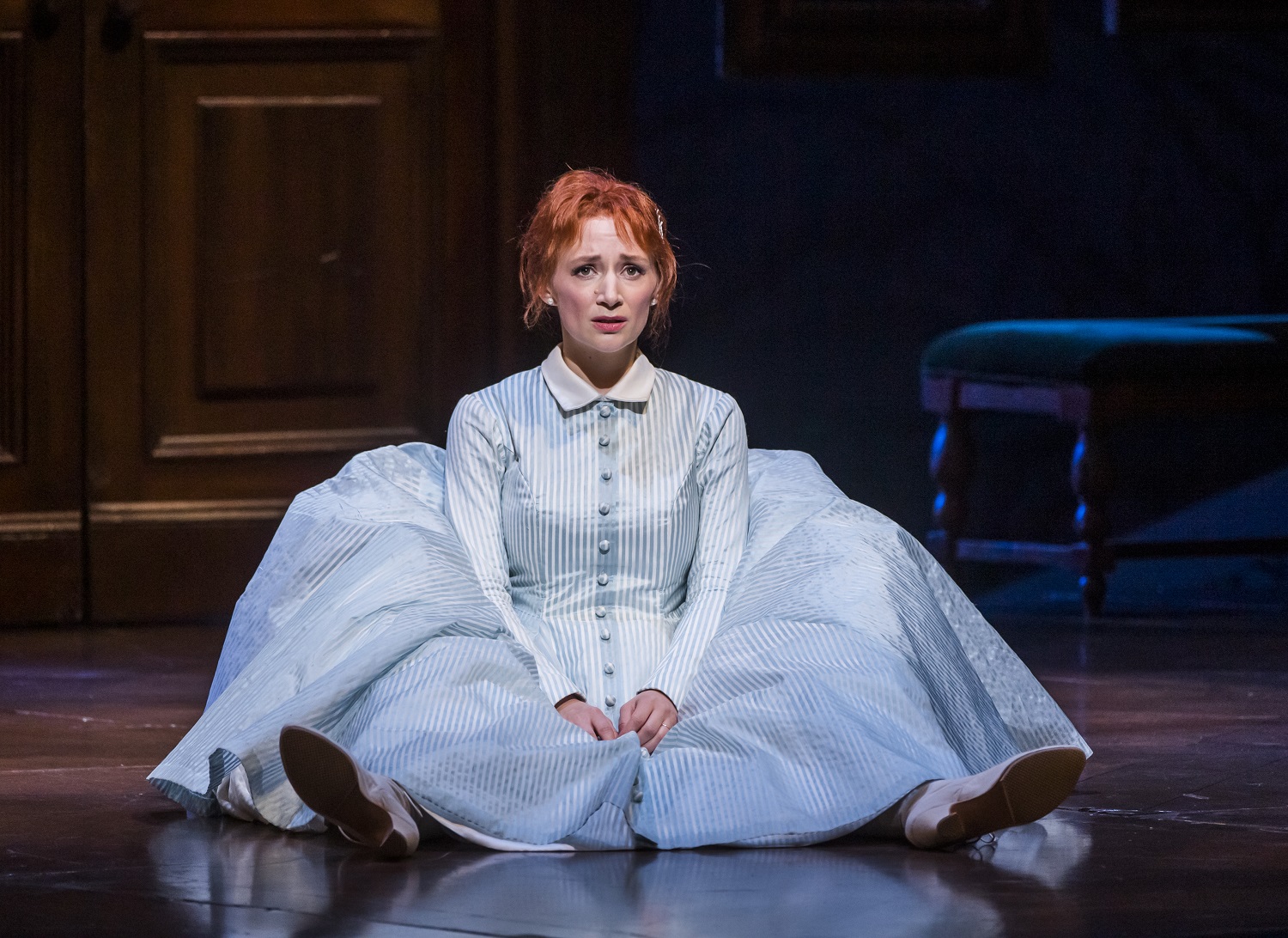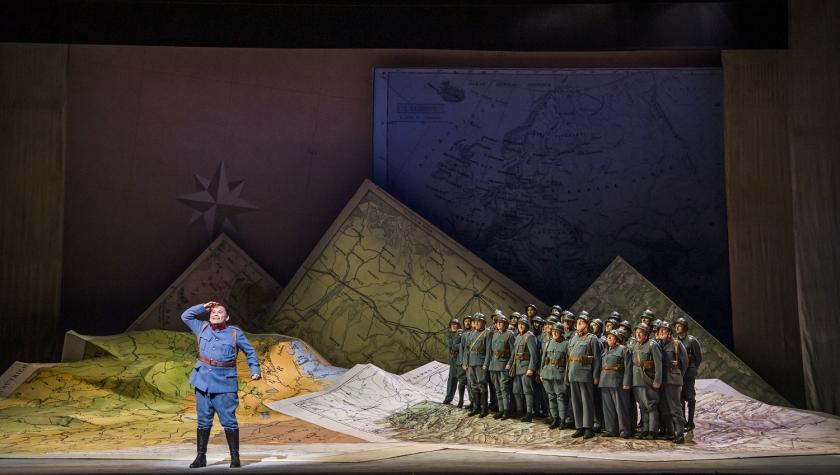On paper, this might seem like a revival too far, a production clearly intended as a vehicle for world-class singers being tacked on the end of the Covent Garden season, and without any big names in sight. But it turns out that Laurent Pelly’s staging, now in its fourth London return, has enough charm and substance to justify an outing with lesser names. And the revival cast is certainly competent, with no obvious weak links, and a sense of ensemble that keeps the hackneyed plot ticking over and the light comedy just on the right side of cliché.
The production was designed for big stages – it was a co-production with Vienna State Opera and the New York Met, but the sets, by Chantal Thomas, are simple and unfussy. The first act is set in the Tyrolean Mountains during the Napoleonic wars, and this is represented as a collection of huge military maps lying creased across the stage to create the undulations. The second act is set in a castle, for which a panelled drawing room is simply placed, at an angle, on top of the Act I set during the interval. It’s all very effective – apart from the tank at the climax, which is just silly. Most of the action centres around a military regiment, and the director, as well as revival choreographer Karine Girard, make creative use of the male chorus, who, despite being uniformed in a monochrome blue, enliven the drama with creative entrances, dances and tattoos.
Donizetti’s score calls for a cast that is led from the top, with both the lead roles, Marie and Tonio, demanding convincing comic acting, some substance to their otherwise tenuous romance, and voices that can bring the house down. Sabine Devieilhe (pictured below) has the stage presence for Marie, whom she presents as by turns naïve and mischievous.  But Devieilhe's voice doesn’t seem right for the part. Her tone is clear and precise, but her voice is too small. She also struggled with the high notes at the end of her big arias in both acts. Mexican tenor Javier Camarena was more convincing as the male lead, Tonio: he has a mature technique that allows him to navigate this treacherous role with few problems. His style of delivery is quite old-fashioned, a kind of matinee idol sound, sometimes a bit nasal, but that suits Donizetti. He is an unlikely-looking Tonio, short and stocky, but makes the role his own, playing all the physical humour for laughs, but not losing any sympathy in the process. And those high Cs? All clear as a bell, and duly encored.
But Devieilhe's voice doesn’t seem right for the part. Her tone is clear and precise, but her voice is too small. She also struggled with the high notes at the end of her big arias in both acts. Mexican tenor Javier Camarena was more convincing as the male lead, Tonio: he has a mature technique that allows him to navigate this treacherous role with few problems. His style of delivery is quite old-fashioned, a kind of matinee idol sound, sometimes a bit nasal, but that suits Donizetti. He is an unlikely-looking Tonio, short and stocky, but makes the role his own, playing all the physical humour for laughs, but not losing any sympathy in the process. And those high Cs? All clear as a bell, and duly encored.
The rest of the cast is competent, but without any real standouts. As Sulpice, the father-like sergeant of the regiment, Pietro Spagnoli is suitably comic, but his baritone lacks focus. Enkelejda Shkoza and Donald Maxwell both still have the voices, just, for the Marquis de Berkenfield, the aristocrat who claims Marie as an heir, and Hortensius her steward, but the comedy between them is laboured. Miranda Richardson is better in the spoken role of Crankentorp, another aristocrat in the plot to marry off Marie. Astonishingly, this role was taken by Ann Widdecombe in 2012, but memories of that dark moment in the company’s history are all but erased by Richardson’s elegantly judged reading.
Conductor Evelino Pidò leads a buoyant if unremarkable account of the score. Some wayward ensemble from the chorus in the more complex numbers may have been first night jitters, although greater detail and focus to the orchestral accompaniment throughout could have elevated proceedings. A serviceable return for this venerable staging, then, but Javier Camarena gives the only standout performance – and if you are going just for him, be aware that he is not singing in two of the performances.















Add comment